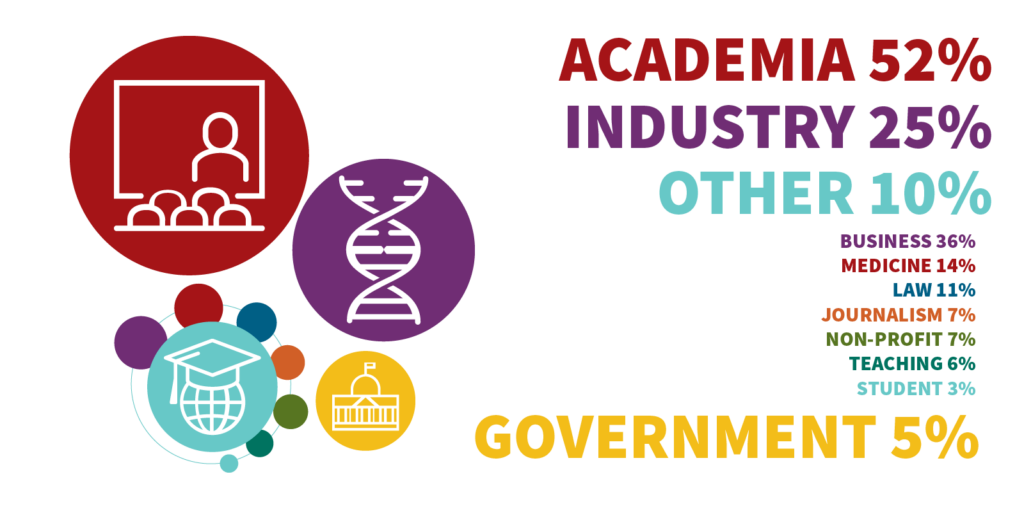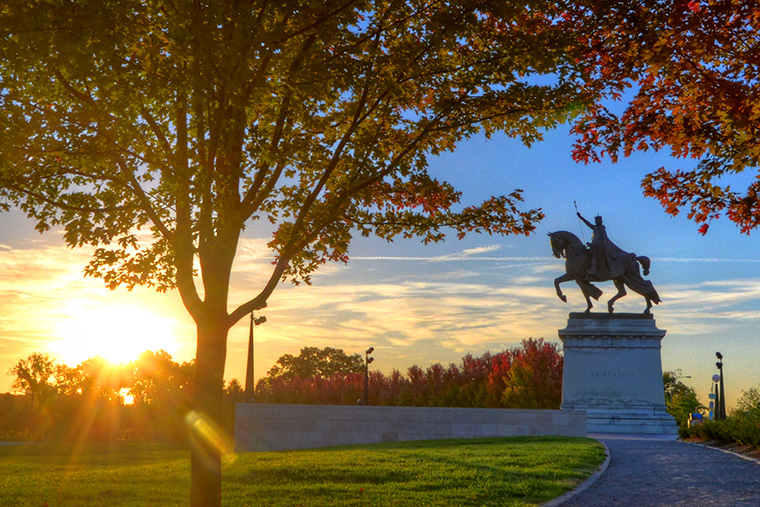The Roy and Diana Vagelos Division of Biology & Biomedical Sciences (DBBS) at Washington University in St. Louis provides biosciences doctoral students with a supportive learning environment for scientific discovery. Throughout your training in our PhD programs, you’ll be encouraged, empowered and equipped to address big questions in science and in the world.
As one of more than 600 students in the division, you’ll have access to nearly 650 prospective faculty mentors with whom you may perform your dissertation work. This unparalleled flexibility results from joint governance of DBBS by the Washington University School of Medicine and the School of Arts & Sciences — a 50-year-old model that fosters the most impactful science executed at the boundaries of fields, programs, disciplines, schools and departments. This collaborative, interdisciplinary approach that transcends traditional boundaries is a hallmark of DBBS, and our training programs routinely rank among the top PhD programs nationally and internationally.
DBBS graduate students are part of an elite research environment that includes one of the country’s top universities and medical schools, world-renowned researchers in numerous fields and the legacy of many Nobel Laureates. Examples of Nobel-winning work conducted at WashU include Joseph Erlanger and Herbert Gasser (1944, neurophysiology), Carl and Gerty Cori (1947, enzyme regulation), Rita Levi-Montalcini and Stanley Cohen (1986, nerve growth factor), Arthur Kornberg (2006, DNA replication) and Charles Rice (2020, virology).
Among the nation’s most dynamic and robust research enterprises, WashU excels in many important research areas including neuroscience, immunology, microbiology, developmental biology, plant sciences, genetics and quantitative & data sciences. Further, students are supported by cutting-edge core facilities in genomics, metabolomics, microscopy, high throughput screening, animal behavior and others.
DBBS graduates go on to a variety of leadership positions that utilize their research skills and biosciences knowledge. Below is a snapshot of graduate outcomes as of May 2023.

Why we love St. Louis

St. Louis is an affordable, fun and vibrant city in which to live, learn and work. It’s foodie-friendly, boasts an active music, theater and art scene and offers nearby opportunities for hiking, biking, climbing and water sports. Not to mention, Forest Park — nestled between WashU’s Danforth and Medical campuses and recently voted as the No. 1 city park in the U.S. — has abundant green spaces, sports fields, recreation trails and museums of art, history and science, all for free.
Beyond the array of activities, St. Louis is a national hub for innovation, research and business development, especially in the fields of biotechnology and plant science. Today, engineers, scientists, business leaders, educators, artists and other innovative and creative professionals here are working at the forefront of a multitude of fields and endeavors.
Alumni survey
If you’re a graduate of the Roy and Diana Vagelos Division of Biology & Biomedical Sciences, we want to hear from you! Please complete our brief alumni survey and help us maintain up-to-date records.